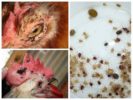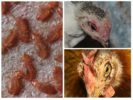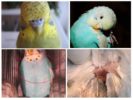- Chicken fleas
- Chicken fleas
- Parrot fleas
- Sagebrush
Fleas are the most common blood-sucking parasites on our planet. High-powered chicken fleas in the photo are some of the smallest representatives of this insect order, but their small size is successfully compensated by their amazing ability to reproduce quickly and excellent survival.
Habitats, species features
Chicken fleas, unlike many other flea species, are not able to stay outside the host body for a long time. Therefore, these parasites lead a sedentary lifestyle and try to populate as much as possible the entire living space around. Chicken fleas are very dependent on ambient temperatureTherefore, most of their lives are spent on the victim’s body or moved to the nest litter.
The most favorable temperature at which chicken fleas feel the greatest comfort is 40 degrees. Therefore, bloodsuckers try not to leave the body of the bird.
Interesting!
Chicken fleas on humans do not parasitize, but there may be some time to move to new habitats, during which they experience discomfort and hunger. The human body temperature is not suitable for their long stay and successful reproduction, and the skin does not lend itself to biting.

Chicken fleas, like all representatives of this genus, do not have wings. Arthropods are small in size, and have a very flat body. These qualities help parasites move freely through the dense thickness of feathers and down. Chicken fleas have unusually developed hind limbs, which allows them to jump more than one and a half meters in length.
Favorable conditions for the settlement of chicken fleas arise if:
- the chicken coop is not cleaned or ventilated;
- litter does not change for a long time;
- nests are kept in poor condition;
- high temperature and humidity are maintained for a long time;
- disinfection measures are not carried out.
Pests, once in a chicken coop, are able to infect all living creatures in a matter of days. Females lay large portions of eggs almost daily, and to increase the area of distribution of larvae, fleas scatter eggs with strong hind legs. As a result of such intense actions, the entire territory of the chicken coop is strewn larvaewhich in a short period of time turn into young parasites. Therefore, the treatment of fleas in chickens is a very difficult task.
Damage to humans and animals
Chicken fleas cannot feed on human or other mammalian blood. Therefore, they do not represent direct harm, as a parasitic species. Fleas can bite a person or a pet, but in most cases they will not be able to bite through thick skin and get to the blood capillaries. The human body temperature is unfavorable for chicken fleas, so they will try to leave the carrier as quickly as possible. But the greatest danger is posed by insect pathogens of infectious diseases:
- brucellosis (Bruce's disease);
- salmonellosis;
- trypanosomes (sleeping sickness);
- encephalitis.
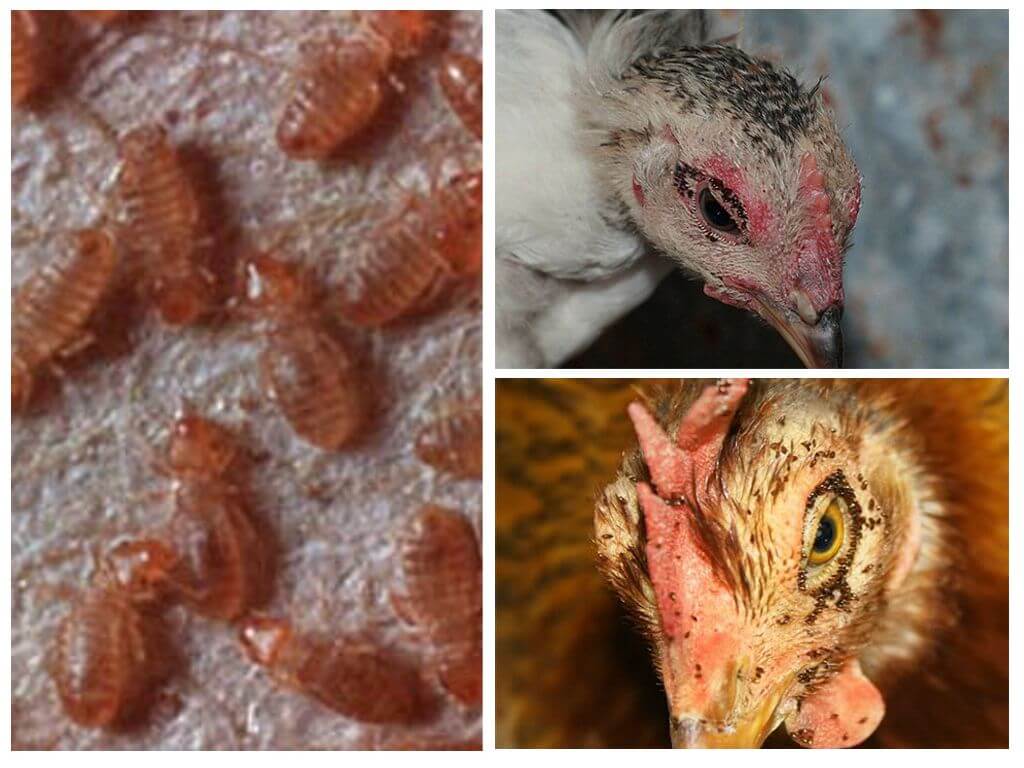
These diseases are easily transmitted from animal to human and are often fatal.Even short-term contact with an ill chicken can result in the transfer of infection from one species to another. This is why chicken fleas are serious danger to humans.
For birds, bloodsucking parasites are an even greater disaster than for humans. In some cases, infection of chickens with fleas leads to the destruction of livestock. Along with fleas of weakened birds, lice that cause lice can also chase.
The infection process is difficult to control due to the microscopic size of the parasites. But there are a number of signs in which you can determine the imminent threat to chickens:
- the number of laid eggs is significantly reduced;
- a nervous condition is observed;
- they lose weight but consume a lot of food;
- often itchy with beak or claws.
These signs indicate infection with chicken parasites. To verify this completely, a visual inspection is required. To do this, you need to know how chicken fleas look.
Insects most often parasitize in areas where the skin is thinner. Near the eyes and near the beak, birds have the most blood capillaries located close to the surface of the skin. The skin in these places is also very delicate and thin. Chickens have the same tender spots in the area of the crest on their heads.
A detailed examination reveals whole colonies of arthropod parasites that have sunk into the skin of birds.
Hens infected with parasites behave unusually. They often itch and pluck feathers on themselves. In advanced cases, chickens become anemic and die if left untreated. Birds eat a lot, but still lose weight rapidly. Often, chicken fleas infect the entire population of poultry with infectious diseases and then the death of the entire livestock occurs. Such cases pose a special danger to humans, since it is strictly forbidden to eat meat and eggs of sick chickens. In addition to economic damage, an outbreak of dangerous infectious diseases is possible among people.
Important!
Avian fleas are not only dangerous for the economy. Domestic decorative birds also often become carriers of fleas. Even small budgies that never leave the premises can easily become victims. blood sucking insects.
If chicken fleas have already settled in the new territory, then their removal is many times more difficult than feline or canine fleas.
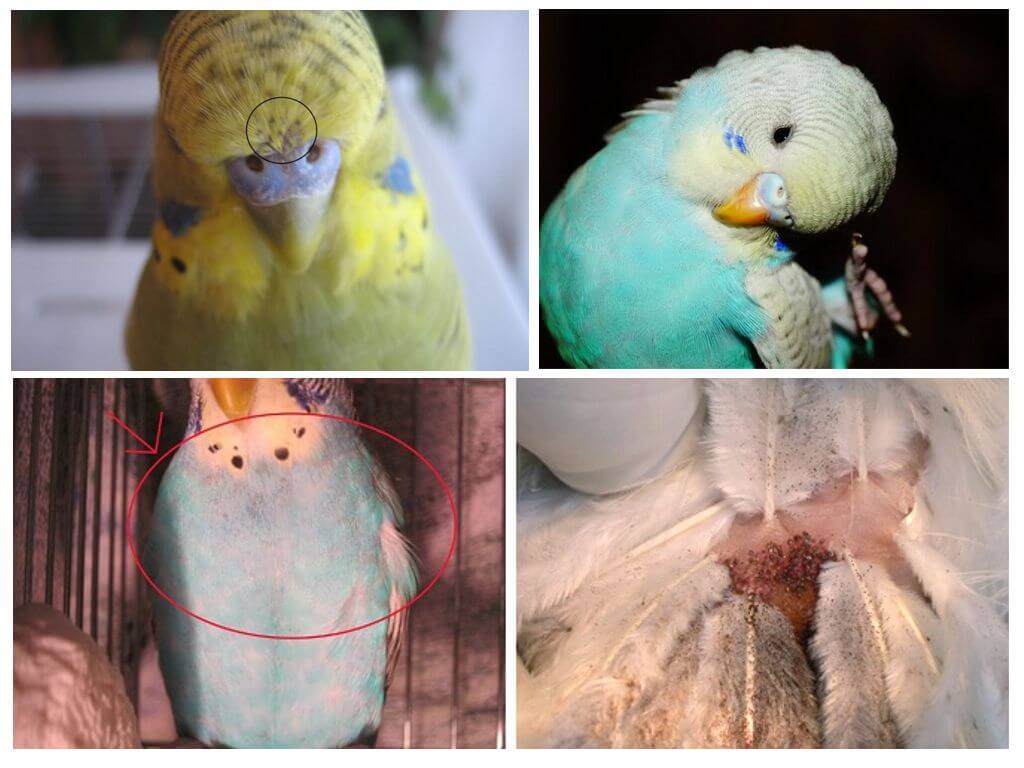
Ways to deal with chicken pests
For the household, a serious problem is if fleas or lice have appeared in chickens. Birds cannot independently remove parasites, they only severely injure themselves and tear out feathers on their neck and sides. Treatment for chicken fleas is a very complex and lengthy process. To destroy pests, you can use the traditional modern method of control, as well as conduct treatment with folk remedies.
Important!
The most important step in the fight against parasites is prevention. To do this, you need to regularly change the litter of chickens, since all the larvae and pupae live in it for a long time until they find a carrier. It is very important to regularly clean the excrement and food debris in the houses, as young larvae feed on pasture and decaying excrement before pupation.
The next important step is the processing of the entire chicken coop with chemicals. To get fleas from chickens, you need to know how and how to treat the chicken coop from lice and fleas. For this purpose, chemical insecticides - peritroids - are best suited. They are effective and inexpensive.
To get rid of chicken fleas for a long time, such treatments should be carried out regularly, but it is important to strictly observe the dosage of the drugs. After disinfection of chicken coops with peritroids, it is forbidden to eat eggs and chicken meat for several days, otherwise poisoning or allergies are possible, since drugs accumulate in animal tissues.If birds are temporarily absent in the chicken coop, it is possible to carry out complex aerosol treatment with phosphorus-containing or chlorine-containing insecticides. Such treatment is extremely effective and eliminates any parasites for a long period.
Important!
Chlorine and phosphorus preparations are potent poisons and pose a threat not only to insects, but also to all living things, including humans.
The most difficult stage is the individual treatment of the flock of birds with anti-flea drugs. To rid fleas of chickens, it is necessary for each bird to apply special drops to the withers and carefully rub the product into the skin. Most often, Peritrum or Sevin dusts are used for this, but it can also be successfully treated with drops for dogs and cats. The main thing is to observe the dosage.
Every villager knows how to deal with fleas in chickens using folk methods.

Blood-sucking insects do not tolerate smell:
- wormwood;
- tansy;
- geraniums;
- lavender;
- potato tops;
If these plants are hung in a chicken coop, and part of the walls treated with kerosene or vinegar, then the insects will try to avoid these places.
Most chickens can fight fleas on their own, for this they take sand baths. If you organize special containers in the chicken coop with a mixture of sand and ash, then the birds themselves will get rid of harmful parasites.
To defeat blood-sucking insects, not only physical means of destruction are important, but also preventive measures. The greatest effect is achieved with an integrated approach to solving the problem.
